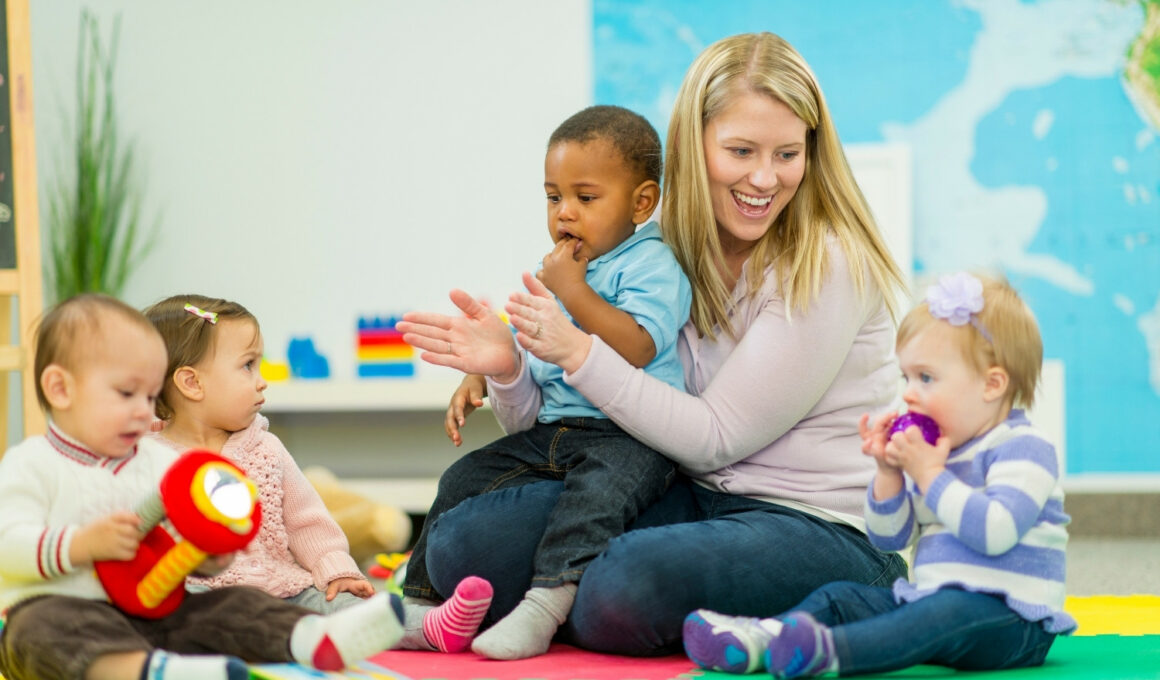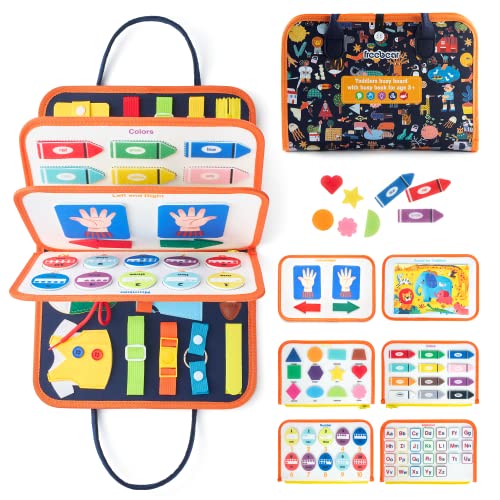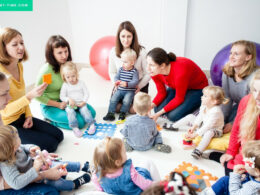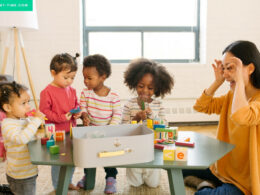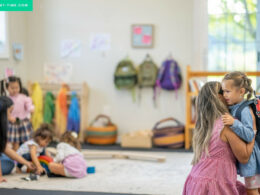In This Article Show
As a mother of three, I understand firsthand how pivotal the decision of selecting the right daycare can be. These aren’t just professional insights; they are gleaned from real-life experiences and the collective wisdom of numerous parenting journeys.
It’s more than just finding a convenient location or choosing the most affordable option. It’s about ensuring that during those hours away from home, our children are in a nurturing, educational, and supportive environment.
In this post, I’ll walk you through eight key indicators of a high-quality daycare that every parent should be aware of.
8 Signs of a High-Quality Daycare Every Parent Should Know
Whether you’re a first-time parent or have been through the daycare selection process before, knowing these signs will empower you to make the best choice for your child’s early learning experience. So, let’s explore together what makes a daycare stand out in terms of quality and care.
1. Licensed and Accredited Facility
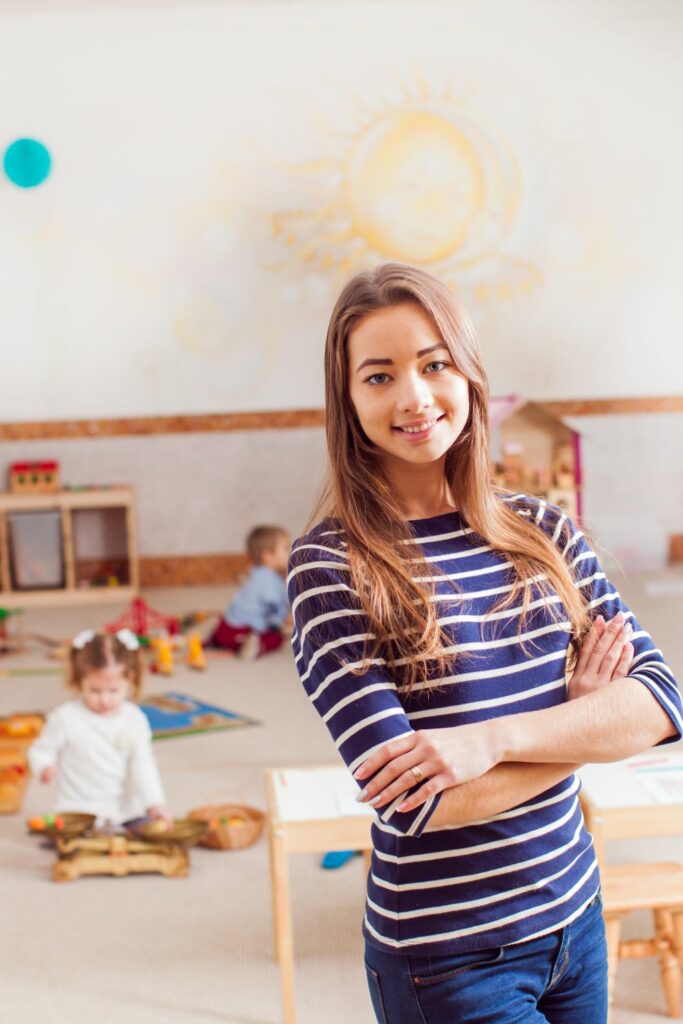
Choosing a daycare that is both licensed and accredited is crucial in ensuring a safe and enriching environment for your child. Licensing is the government’s way of maintaining basic health and safety standards. It means the daycare meets minimum state or local regulatory requirements – a fundamental checkpoint for any parent.
Accreditation, on the other hand, is about excellence and quality. It signifies that the daycare has voluntarily met higher standards set by national organizations. These facilities are regularly evaluated and must adhere to best practices in early childhood education.
Great deals to snatch for your little ones 🎉
By opting for a licensed and accredited daycare, you’re not just ensuring a safe environment for your child; you’re also ensuring they are in a place that fosters learning, growth, and development. It’s about peace of mind, knowing your child is in capable and professional hands.
2. Qualified and Caring Staff
The heart of a high-quality daycare lies in its staff. Qualified educators play a pivotal role in early childhood development. Their expertise isn’t just about academic teaching; it’s about nurturing the emotional and social growth of young minds.
Another key aspect is the staff-to-child ratio. A lower ratio means more individual attention for your child, a critical component in early years when personalized care is vital.
Lastly, ongoing staff training reflects a daycare’s commitment to continuous improvement and staying updated with the latest educational practices.
3. Positive Parent Feedback and Reviews
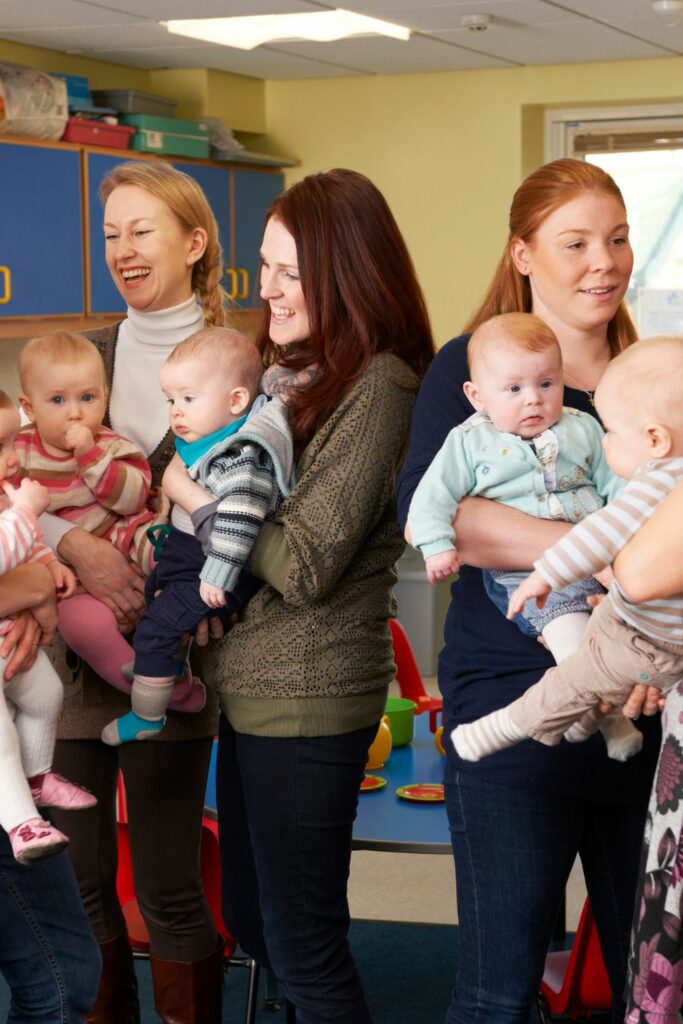
Positive feedback and reviews from other parents can be a goldmine of information when selecting a daycare. They offer real-world insights into how the facility operates and its impact on children. Glowing testimonials often point to a nurturing and effective environment, where children thrive and parents feel confident and reassured.
To find these reviews, start with a simple online search, check social media, or visit parent forums. When reading through feedback, look for comments about the staff’s interaction with children, the learning environment, and daily routines.
Remember, while no facility is perfect, a pattern of positive experiences shared by multiple parents is a strong indicator of a high-quality daycare. It’s these firsthand accounts that can give you a true sense of what to expect and help guide your decision.
4. A Safe and Stimulating Environment
A safe physical environment is non-negotiable when it comes to high-quality daycare. It’s the foundation upon which children can explore, learn, and grow. Safety means secure premises, clean facilities, and equipment that meets all safety standards. It’s about creating an environment where parents can leave their children knowing they are in a safe space, free from hazards.
But safety is just the start. The environment should also be stimulating. This means having a variety of age-appropriate learning materials and activities that cater to different stages of child development. These resources should challenge young minds, spark curiosity, and encourage exploration.
From books and puzzles for cognitive development to art supplies and play areas for creative and physical growth, the right materials can make a world of difference in a child’s early learning experience.
5. Comprehensive Learning Programs
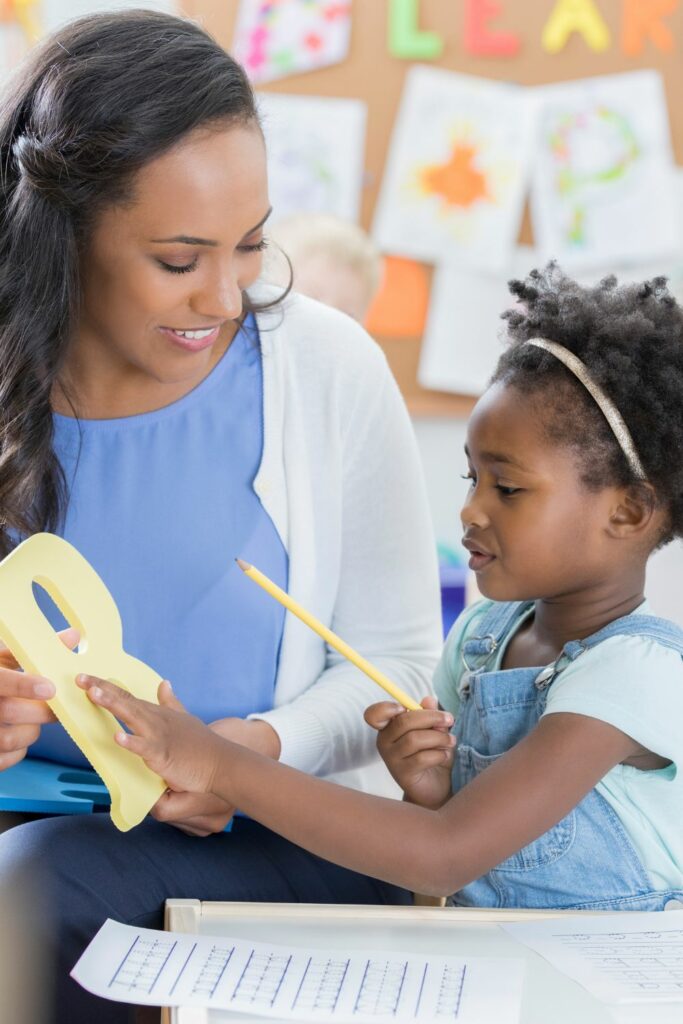
Effective learning programs in daycare are characterized by their holistic approach to child development. These programs go beyond basic childcare; they are designed to foster cognitive, social, emotional, and physical growth. Here are some key characteristics of such programs:
An effective program balances structured learning with free play. It incorporates a mix of activities that promote literacy, numeracy, and scientific inquiry, alongside those that encourage creativity and physical activity.
High-quality learning programs should also introduce children to various cultures and social concepts, fostering an environment of inclusivity and respect from an early age.
6. Healthy Nutrition and Physical Activity
In the formative years of a child’s life, balanced nutrition and regular physical activity are cornerstones of healthy development. Daycares that prioritize these aspects are investing in the well-being and long-term health of the children in their care.
A high-quality daycare will offer nutritious, balanced meals that cater to the dietary needs of growing children. This includes a variety of fruits, vegetables, whole grains, and proteins. For children with dietary restrictions or allergies, the daycare should demonstrate flexibility and understanding, providing suitable alternatives.
Equally important is the emphasis on physical activity. Active playtime is not just about movement; it’s about developing motor skills, encouraging teamwork, and fostering a love for physical fitness.
By integrating healthy eating habits and regular physical activities into their daily routine, daycares play a pivotal role in shaping healthy lifestyles from an early age.
7. Transparent and Open Communication

Transparent and open communication between parents and daycare staff is fundamental to a high-quality childcare setting. It’s essential for building trust, ensuring peace of mind, and fostering a collaborative approach to a child’s care and development.
Effective daycares ensure that parents are regularly updated on their child’s progress, activities, and any incidents that may occur. This can be through daily reports, emails, or parent-teacher meetings.
In addition, staff should be easily accessible for parents to discuss concerns, ask questions, or provide updates about their child. A responsive and approachable staff indicates a daycare’s commitment to parent involvement.
8. Consistent and Positive Discipline Policies
Consistent and positive discipline policies in a daycare setting are crucial for creating a safe and respectful environment where children can thrive. These policies play a significant role in shaping children’s behavior, teaching them about boundaries, respect, and social interactions.
- Importance of Consistency: Consistency in discipline ensures that children understand the expectations and consequences of their actions.
- Positive Approach: Positive discipline focuses on guiding children rather than punishing them. It involves setting clear boundaries and using incidents as opportunities for learning and growth.
- Communication with Parents: It’s imperative that daycare centers communicate their discipline policies to parents. This should include the methods for managing challenging behaviors and how parents can reinforce these strategies at home.
In essence, transparent and open communication is not just about sharing information; it’s about creating a partnership between parents and daycare providers, which ultimately benefits the child’s well-being and development.






